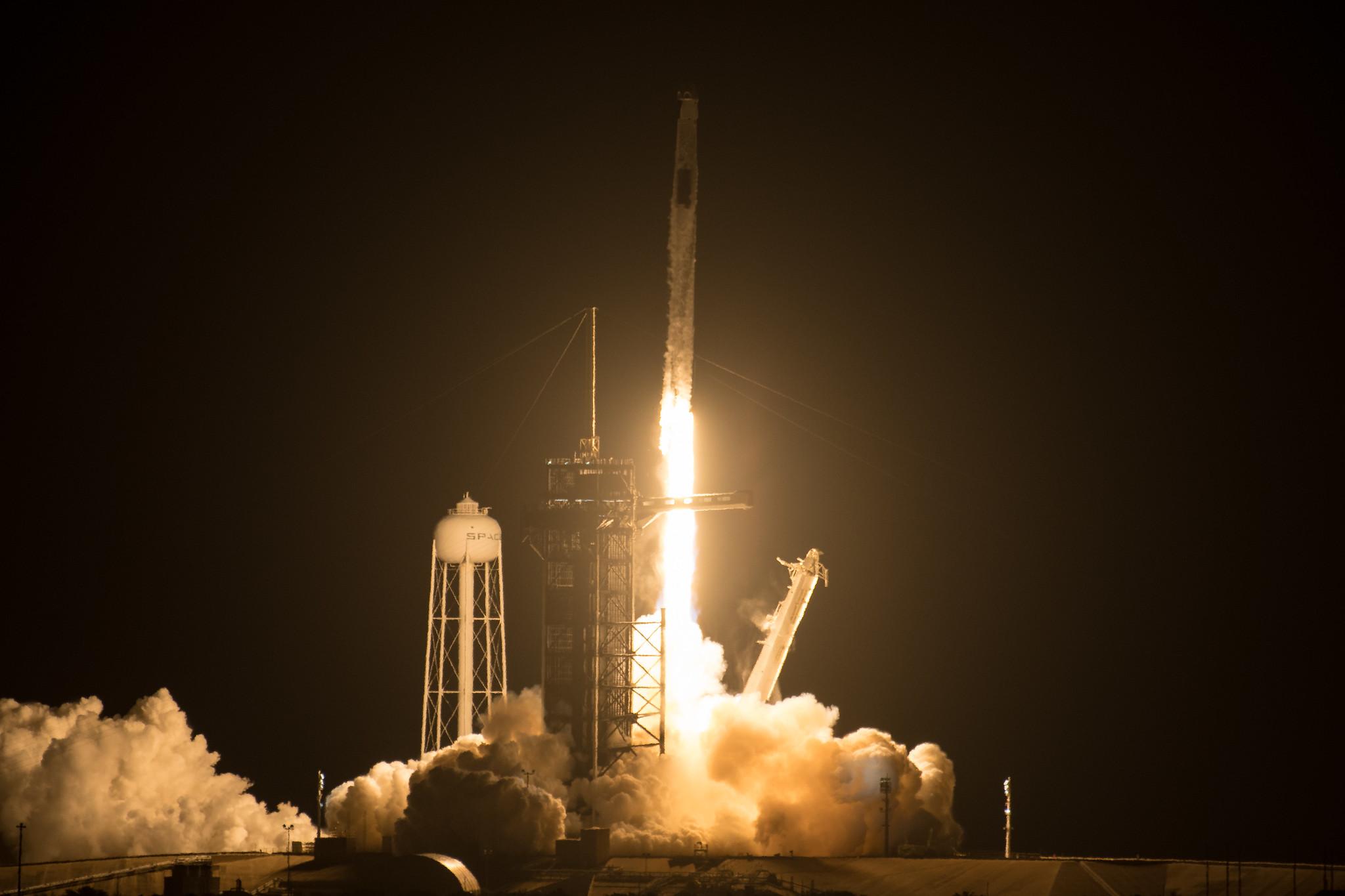SpaceX's next astronaut launch for NASA delayed a week by 'visiting traffic' at space station
The Crew-3 Dragon mission will now launch Oct. 31.

Breaking space news, the latest updates on rocket launches, skywatching events and more!
You are now subscribed
Your newsletter sign-up was successful
Want to add more newsletters?

Delivered daily
Daily Newsletter
Breaking space news, the latest updates on rocket launches, skywatching events and more!

Once a month
Watch This Space
Sign up to our monthly entertainment newsletter to keep up with all our coverage of the latest sci-fi and space movies, tv shows, games and books.

Once a week
Night Sky This Week
Discover this week's must-see night sky events, moon phases, and stunning astrophotos. Sign up for our skywatching newsletter and explore the universe with us!

Twice a month
Strange New Words
Space.com's Sci-Fi Reader's Club. Read a sci-fi short story every month and join a virtual community of fellow science fiction fans!
Heavy traffic at the International Space Station (ISS) has pushed SpaceX's next crewed launch to the orbiting lab for NASA back a week.
SpaceX's Crew-3 mission is now targeted to launch no earlier than Oct. 31 — a delay from the Oct. 23 date that was announced in April, NASA officials said in a statement on Monday (June 14).
The agency said the decision was made due to "visiting vehicle traffic" but provided no other details. Spaceflight Now's global launch calendar shows that a robotic Russian Progress cargo spacecraft is set to dock with the ISS on Oct. 28, an event that requires extensive crew time for unloading equipment, supplies and experiments.
In photos: SpaceX's Crew-2 mission to the International Space Station
Crew-3 will launch NASA astronauts Raja Chari, Tom Marshburn and Kayla Barron and European Space Agency (ESA) astronaut Matthias Maurer to the orbiting lab in a Crew Dragon capsule. The foursome will leave Earth atop a SpaceX Falcon 9 rocket from Launch Complex 39A at NASA's Kennedy Space Center in Florida for what is expected to be a six-month mission, a typical space station tour of duty.
SpaceX's Crew-2 mission, which arrived at the ISS on April 24, will depart "early to mid-November" after Crew-3's arrival, NASA officials said. Crew-2 includes NASA astronauts Shane Kimbrough and Megan McArthur, Japan Aerospace Exploration Agency astronaut Aki Hoshide and ESA astronaut Thomas Pesquet.
The next crew exchange after Crew-3's will happen "no earlier than mid-April 2022," NASA officials said in the statement, "with the partner spacecraft and launch vehicle to be determined at a later date." This could mean a flight by a Russian Soyuz spacecraft or an American commercial crew vehicle.
Breaking space news, the latest updates on rocket launches, skywatching events and more!
NASA's space shuttle fleet retired in 2011 after 30 years of service. For nearly nine years afterward, the agency relied solely on Soyuz spacecraft for crew transportation. In the meantime, the agency worked on developing a commercial crew program, awarding $6.8 billion in 2014 to SpaceX and Boeing for future astronaut launches.
SpaceX carried its first astronauts to the ISS in 2020, on a test flight called Demo-2. Crew certification of Boeing's CST-100 Starliner capsule has been delayed several times, however, following the failure of an uncrewed test flight to reach the station as planned in December 2019. Starliner is expected to make another attempt for crew certification during an August test flight to the orbiting lab.
NASA has been obtaining more Soyuz seats from time to time to fill in the gap. This fall, for example, the agency secured an astronaut seat on a forthcoming Soyuz launch for $90 million. NASA has not yet announced which astronaut will take that seat alongside two Russian cosmonauts.
Follow Elizabeth Howell on Twitter @howellspace. Follow us on Twitter @Spacedotcom and on Facebook.

Elizabeth Howell (she/her), Ph.D., was a staff writer in the spaceflight channel between 2022 and 2024 specializing in Canadian space news. She was contributing writer for Space.com for 10 years from 2012 to 2024. Elizabeth's reporting includes multiple exclusives with the White House, leading world coverage about a lost-and-found space tomato on the International Space Station, witnessing five human spaceflight launches on two continents, flying parabolic, working inside a spacesuit, and participating in a simulated Mars mission. Her latest book, "Why Am I Taller?" (ECW Press, 2022) is co-written with astronaut Dave Williams.
